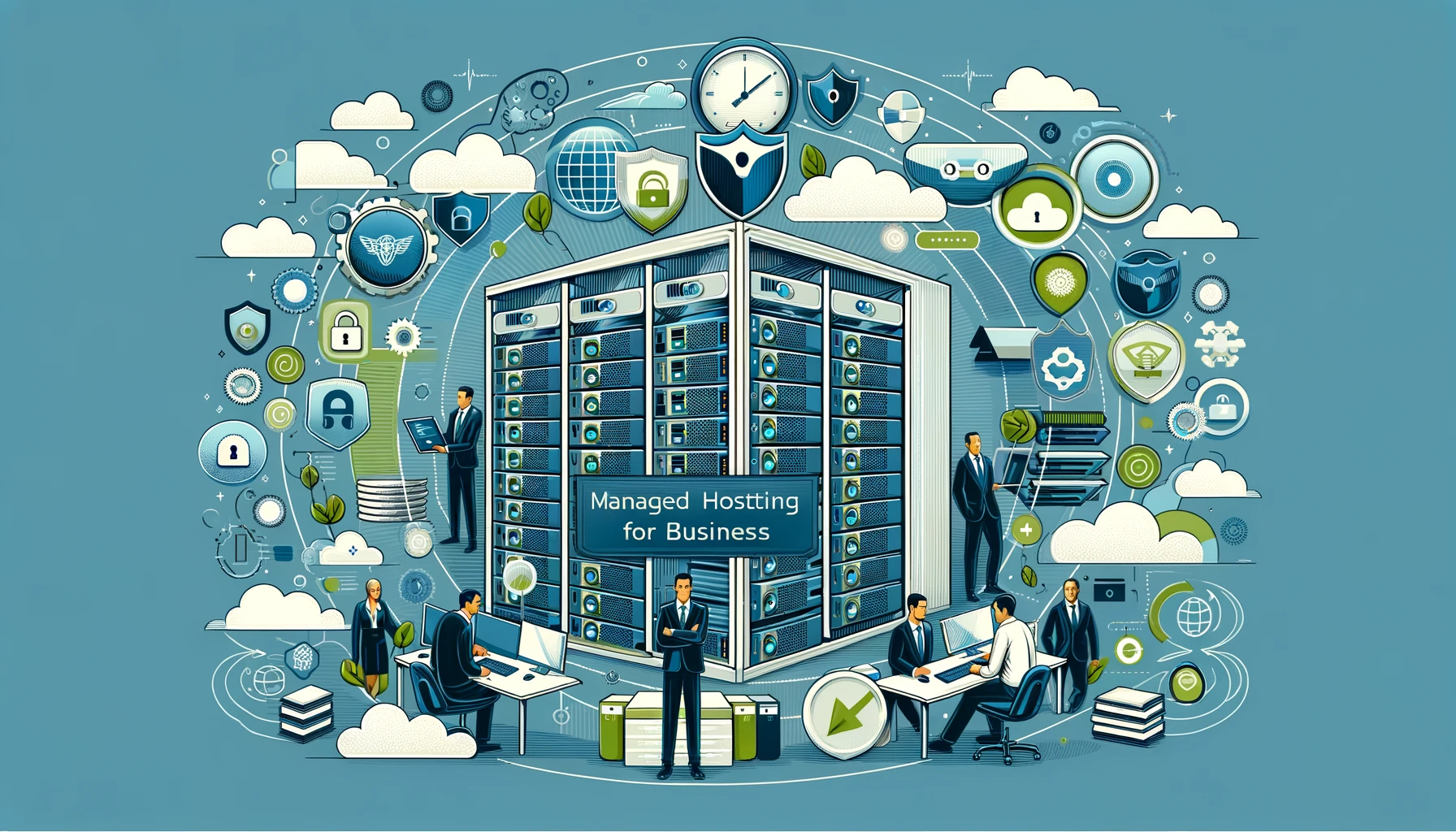Understanding the Benefits of Managed Business Hosting

If you want to build your enterprise’s website, open an online store, or start a business blog, then you’ve realised that you’re going to need a web hosting plan to do so.
You may have already browsed some hosting provider and been quite confused! With the variety of hosting plans available, it can be hard to know what’s right for you and your business.
Choosing the right web hosting plan for your website can be daunting, especially if you aren’t experienced. After all, you don’t want to be paying for more than what you need!
In this guide we aim to explain exactly what managed enterprise cloud hosting is, how it works, and what are the benefits of using it.
Table of content
2. The technical benefits of managed hosting
3. The business wise benefits of managed hosting.

1. What is Managed Hosting?
So, what are fully managed hosting services? You’ve probably come across the phrase “managed hosting” while doing your research or simply reading our previous article: “Managed VS Unmanaged Hosting – Explained!“.
In short, a managed hosting service means the hosting provider will take care of all your server related issues and management requirements. In fact, as you are not only renting the hardware, it includes the management and maintenance service as well.
Think of this as getting a full warranty with free oil changes and maintenance when buying a new car.
Now on the opposite, with unmanaged hosting, you just rent a server from the hosting provider and you are in charge for all management and maintenance tasks.
In order to discuss the benefits of managed enterprise hosting, we will break this down into two parts: the technical benefits and the business wise benefits.

2. The technical benefits of managed hosting
a. Server monitoring
Server monitoring is simply critical for your business. This is a process where the hosting provider of constantly scan the servers to search for any irregularities or potential failures. And prevent major problems before they happen
In managed hosting, your hosting provider constantly monitors your servers and guarantees both good server uptime and network availability.
Server monitoring is not impossible to self-manage, but demands specific skill sets, time and of course money.
b. Security
The server security is a huge priority for any business and entity. A managed hosting service covers various aspects of security such as:
- Security audits
- Spam filtering
- Virus scanning
- Firewall configuration
- OS updates
We are well equipped with various tools and with +20 years of experience dealing with server security related issues. We keep scanning our operating systems and core applications to find security vulnerabilities.
c. Managed storage
The storage requirements of a company can change from time to time. The amount of space needed now by an organization may not be the same as they will need a few years or even months down the line.
Getting the balance right again requires specific technical skills and an ongoing commitment and availability to give it proper attention.
Managed storage means outsourcing a company’s storage needs to a managed services provider.
This is beneficial for the company because it helps them reduce the costs related to buying and administering storage services.
d. Managed database
This is very much similar to Managed Storage, but calls on the skills and expertise of an experienced Database Administrator (DBA) rather than more generalised system admins.
The DBA acts as a software and service consultant to design the best database system to meet your needs and requirements.
Managed hosting providers typically have DBAs who are, at the minimum, experienced in SQL Server, MySQL and Oracle.
So as a company you will definitely find the expertise that you need.
e. Backups
Losing data can be extremely costly for a company in terms of money but also in terms of business.
It is therefore critical to have your data backed up regularly. A process that keeps its secure, and preserves its integrity.
Research has shown that small businesses can lose more than 50% of their data after a man-made or natural disaster occurs.
With managed services, you can have the peace of mind that your data is secured and backed up. We have processes and procedures in place to deal with such scenarios.
Now that we have looked at some of the technical benefits of managed hosting, let’s look at some of the business benefits.

3. The business-wise benefits of managed hosting
a. Customized to meet your requirements
Obviously every company has different needs and resources. A good managed hosting solutions should go further a basic one-size-fits-all to meet your own requirements.
You can get a tailored solution to fit exactly what you need.
And you should always check with your provider to choose the service that best fits your needs and the ones that are most critical to you, based on your business needs and budget too.
Have a look here at our managed enterprise cloud hosting offers.
b. Decrease your operating costs
As a small business owner, you already have a lot of expenses to manage. Hiring in-house system admins and a DBA to undertake server then your database management is just an extra expense for the company that you don’t want to have.
It’s often more financially feasible to work with a hosting partner. In fact we already have people with the experience and skill to handle any server related issues.
Our experts have 20+ years of experience and they will gladly assist you in any of your queries.
c. Save time and money
We often say time is money. And the time you spend on managing your servers or the people who manage the servers. This is time that could be better used focusing on your core business instead.
There are only 24 hours in a day and you don’t want to spend half of it on tasks like server management.
You need to be focused on growing your businesses and looking at the big picture. That’s why you can let us handle your server’s management and security for you.

To conclude
As a business or an individual who wants to maintain a digital presence. You’ll need to consider all of these factors at some point.
This is why some businesses keep using unmanaged hosting or self-managed hosting: because they simply haven’t considered all aspects of the managed enterprise cloud hosting option.
If you have any questions feel free to contact the geeks behind us.

